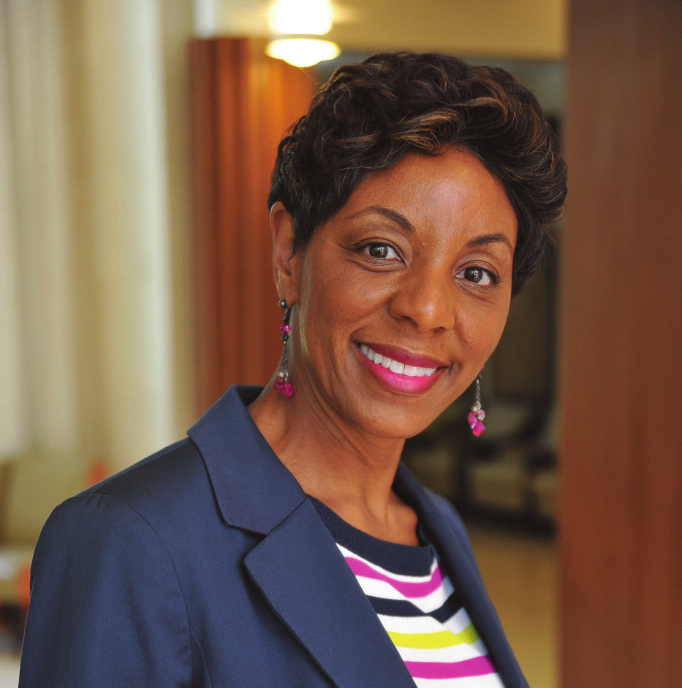By KIM MCCRAY
Our Health Matters. And when you vote for Amendment 2, not only are you voting for a medication that is proven to help people with cancer, HIV & AIDS, glaucoma, PTSD, MS and more, but you’re also voting for positive change in the community.
Now, the opponents of Amendment 2 have taken on a tone similar to Donald Trump…instilling fear through saturating the media with misinformation. For example, the opponents to this amendment have touted that states like Colorado (who successfully passed a similar bill) have experienced a higher use of marijuana among 10th graders.
But if you look at studies from noteworthy organizations such as the International Journal of Drug Policy, Colorado Department of Public Safety and Lancet Psychiatry to see the difference between adolescent use before and after passing a medical marijuana law, the level of misuse for that demographic went down. Therefore I would strongly encourage you not to get caught up by those types of scare tactics while considering the many benefits that passing this bill will bring to people you deeply care about.
What is also important to know is that although some debilitated patients may require higher levels of THC than others based on their specific medical condition, medical-grade marijuana alone, will not get that patient“high,” no matter what level of THC, CBD or any other compound is found in the plant. And unlike the rumors floating around, medical-grade marijuana does not have to be smoked to be effective. It also comes in various other forms such as an ointment, oil, pill and skin patch.
I’m reminded of Bridgette Wilkie from Orlando. Bridgette is a mother, wife and entrepreneur. She suffers from sickle cell anemia and lives with chronic pain that most people cannot imagine. Bridgette is taking “elephant doses” of Oxycontin and Oxycodone and still, there are days when she cannot get out of bed to see her daughter off to school because the pain is just too unbearable.The narcotics that are prescribed for Bridgette have terrible side effects on her organs that make her overall condition worse.
It would be great if she could have access to other effective and safer alternative treatments like medical-grade marijuana, without making her high. Doctors should not be restricted from utilizing other safer and well-proven treatment methods when patients like Bridgette have such painful reactions to the narcotics typically prescribed for people in her condition.
As you may know, current state regulations in Florida do not necessarily prevent doctors from prescribing (or over-prescribing) other drugs such as Morphine, Xanax, Oxycontin and other potentially deadly medications that are much more likely to be habit-forming. By supporting Amendment 2, you will help to ensure the right level of oversight in how medical-grade marijuana will be prescribed and distributed. In fact, one of the key provisions of this amendment is that only licensed physicians can recommend medical-grade marijuana and will be held accountable if they are found to be negligent.
Think about the people in your life, your church or community who will begin to finally find comfort and relief when Amendment 2 passes. Furthermore,history shows that when a state enacts a medical marijuana law, first-time (and ongoing) use among teens in that state goes down.
So when we go to the ballot box, we need to vote “YES” to prevent Florida politics from over-reaching at the expense of people like Bridgette (or our veterans, cancer patients, those suffering from AIDS and others) who could benefit greatly from a safer, more effective and more controlled medical alternative.
Kim McCray is the Outreach Director for United For Care. She can be reached atmccray@unitedforcare.org













I spoke with the office of UNITED FOR CARE who told me that Kim Mccray’s statement “medical-grade marijuana alone, will not get that patient“high,” no matter what level of THC” was either a typo or an unintentional mix up on her part.
This post should be corrected to reflect that she does NOT believe this to be true! Higher levels of THC DO get a patient high. Not nearly as high as some of the pharmaceuticals that are dolled out on a daily basis, but it IS indeed possible to get high with higher doses of THC and Kim McCray doesn’t deny that.
But SO WHAT? If someone has a broken leg do doctors refuse to give them pain killers because they may feel high? NO! You do NOT treat medical conditions based on whether or not the treatment gets a person high. Medical conditions are treated with the best all around medication possible, which many times IS medical cannabis!
High or no high, it’s really unimportant. People who want to use cannabis to get high already are. That has nothing to do with medical cannabis.
This whole article is counter productive to what you are trying to accomplish. You are spreading inaccurate information to people who might not know any better. The people that would read this article are people who are looking for more information on the subject, and probably have little information to begin with. It is also possible that the reader is writing a report over the subject, and if they don’t do some simple fact checking, they would spread the false information even more.
Your first fallacy occurs in the third paragraph when you say, “see the difference between adolescent use before and after passing a medical marijuana law, the level of misuse for that demographic went down.” This is not the case. The most recent report from the Colorado Department of Public Health and Environment says the amount of marijuana abuse among teens has unchanged ever since its legalization. That shows that the rates have never increased or decreased, they have remained constant. I am unsure whether you know that what you said was false or you are ignorant to that fact. Either way, you should have done more research into the rates of marijuana abuse among teens.
Your second fallacy is in the very next paragraph. The first fallacy may have weakened your argument a small amount, but this one is the one that destroys your argument. You make the statement that, “medical-grade marijuana alone, will not get that patient“high,” no matter what level of THC, CBD or any other compound is found in the plant.” That is just not true. Where did you get that information? There is no way that could be true about smoking marijuana. And then you go on to say that the level of THC doesn’t matter, that no amount would get you high. THC is the compound that causes the feeling of being “high”. Once THC is ingested, there are multiple ways for it to get to the brain. The first way is the classic way, smoking. When smoked the THC absorbs into the bloodstream through the lungs, which then transports the THC to the brain, where it affects the neurotransmitters causing the “high” feeling. Another way is by eating it. This process takes a little bit longer, but it ends the same way. The edible or pill, or whatever way the THC is being ingested, has to break down in the stomach and then be absorbed in the small intestine, where it follows the same path and the smoking process. With this process, even a little bit of THC getting to the brain will cause the feeling of being “high”. No matter the amount the user will be affected in the brain. You name other ways of getting THC into your body, but each way ends up with the same result.
One statement you make that actually helps your argument is when you use the anecdote about the mother in Orlando. It is disheartening to hear about such a terrible effect that some prescription medicines can cause. They do have horrifying side effects that cause usage to be hazardous, side effects that marijuana does not have. Too much of the prescription drugs could also kill the user, something marijuana can’t do. It would take approximately 1,500 pounds of marijuana, smoked within a very small amount of time to kill someone. That is a line from the DEA about marijuana. So, it is safe to say that no one would die from a marijuana overdose anytime soon.
The saving grace to your argument is when you suggest how to regulate the selling of marijuana. I agree that only people with licenses or certifications should be able to sell marijuana, and that they should be held accountable if they break the law. In addition to that, laws should be passed that makes harsher punishment for people who break the law by selling marijuana to children or selling without a license. That would help regulate the industry, while keeping agencies that are in charge of enforcing marijuana laws, so no one would lose their jobs.
If you didn’t have so many factual errors in your article, it would make for a good argument. But, because those errors are so large and frequent, it causes your argument to actually hurt your cause. Take some time to actually do some research about marijuana. Don’t just use the first source you find, compare it with other, reputable, sources to guarantee you are not getting your information wrong.